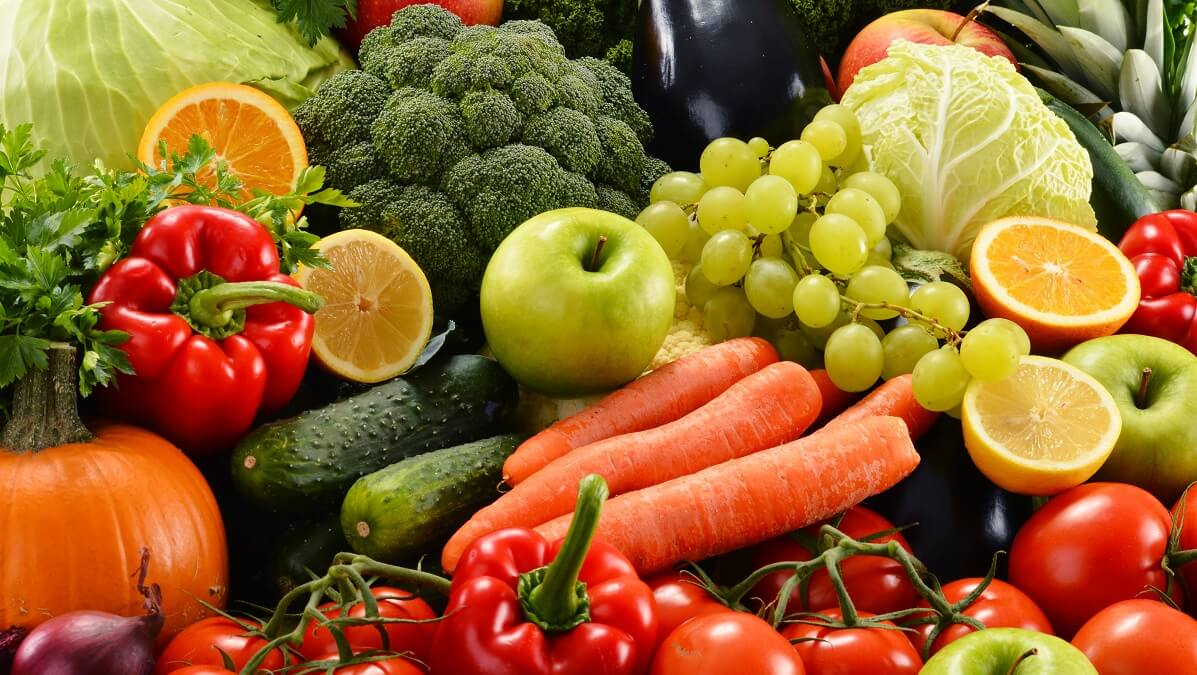Too many Australians of all ages have a poor diet and are missing out on valuable nutrients, reports the Australian Institute of Health and Welfare (AIHW). They do not eat enough of the five food groups and eat too many discretionary foods high in salt, fat and sugar.
Inadequate fruit and vegetable consumption in particular is a risk factor for cardiovascular disease, type 2 diabetes, chronic kidney disease and obesity.
Nutritionists Ellie Busby and Dr Sarah Cooke collaborated with FoodFireFriends in a study to pinpoint the nutrients most often missing from the average person’s diet.
1. Zinc
Nutritionist Ellie Busby says: “If your hair is thinning or dry, you might need more zinc. Most people do not get enough zinc, due to our food being over-processed, which strips the goodness out. Zinc suffers the most.
“Other signs of a zinc deficiency are soft nails, dry skin and getting ill a lot.”
She says foods that are rich in zinc – and which should be included in everyday diets – are wholewheat bread and pasta, wholegrains (quinoa, buckwheat, brown rice) and pumpkin seeds.
2. Vitamin B6
Skin rashes, sore lips and tongue, mood changes and tiredness can all be signs of a vitamin B6 deficiency. Vitamin B6 helps to protect and strengthen the immune system and maintain an optimal amount of amino acids in the blood.
Dr Sarah Cooke says: “Vitamin B6 is one of the most common micronutrient deficiencies in the average person’s diet. Optimal sources of vitamin B6 include avocado, russet potatoes, garbanzo beans, yellowfin tuna and nuts.”
3. Vitamin D
“We cannot get much vitamin D from our diet. In fact, we make most of it from sunlight. The problem? We are not in the sun enough. So, our body turns to our food to get what it needs.” says Ms Busby.
She says the only natural food source of vitamin D is oily fish. “You might find special high-vitamin D mushrooms in your local supermarket nowadays too,” she adds. “Another way would be to look for fortified soya milk, which I get my daily vitamin D from.”
4. Omega-3
Dr Cooke says most people do not eat enough nuts and seeds and eat too many processed foods. One is high in omega-3 (anti-inflammatory, good for you), and one is high in omega-6 (pro-inflammatory, bad for you).
Our brains are made of fat, and most of it is omega-3. One risk of not getting enough omega-3 is that the brain will age faster, and this will increase the risk of dementia.
“What most people do not know is that omega-3 and omega-6 need to be in balance,” says Dr Cooke. “So, we cannot just eat foods high in omega-3 and hope for the best. We need to reduce your omega-6 intake too.”
One way to do that is to reduce the volume of processed foods in your diet and start consuming more nuts and seeds.
Sources of omega-3 include oily fish such as salmon, walnuts and flax seed.
5. Iron
Dr Cooke explains that iron is found in both animal foods and plant foods (heme iron and non-heme iron respectively).
Foods such as red meat, eggs and oysters contain heme iron, which is more easily absorbed than non-heme iron. Plant sources of iron include lentils, spinach, tofu and cashew nuts.
Dr Cooke says to increase the absorption of non-heme iron from plants, combine those foods with, for example, lemon juice in a salad dressing, or add strawberries or oranges to a snack.
She also says to avoid drinking tea with iron-rich foods as tannins found in tea inhibit iron absorption.
6. Calcium and magnesium
These are also commonly missing micronutrients, says Ms Busby.
People consume large quantities of milk and dairy products, but 70 per cent of us are lactose intolerant as an adult, which can lead to gut issues.
For those who are lactose free, it is crucial to eat lots of plant foods with calcium, such as fortified plant milks, dark green leafy vegetables, and seeds (especially poppy, sesame and chia seeds).
“Magnesium is one of the most recommended supplements from doctors all over the world,” she says. “Why? Because it is almost impossible to get enough magnesium from our diets – especially if we are stressed.”
She says the body consumes magnesium stores to build stress hormones.
Wholegrains, nuts, dark chocolate, and dark green leafy vegetable are all optimal sources of magnesium.
The study was conducted by foodfirefriends.com, which is dedicated to helping users grill and barbecue better.
Do you believe you may be low on some of these valuable nutrients? How do you monitor that? Why not share your thoughts in the comments section below?

